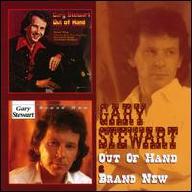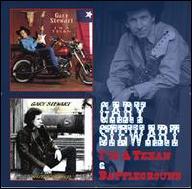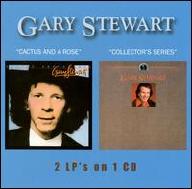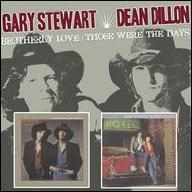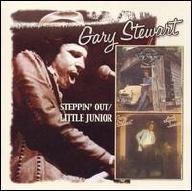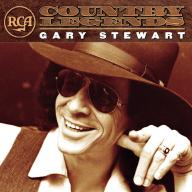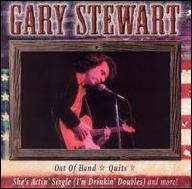Although he composed songs for traditional Grand Ole Opry stars (Cal Smith, Hank Snow), Stewart himself never emulated the traditional values espoused by the Nashville establishment; as one of his song titles stated, he was more of a "flat natural-born good-timin' man." He hung out (and caroused plenty) with Southern rock musicians, using them on his albums at a time when this was still considered radical. He was a renegade, unwilling to play the Nashville game, and his increasing success provided him with the autonomy he needed to do his own thing. However, this generally meant conspicuous excess, especially when it came to substance abuse. Still, from 1975 through 1980, Stewart's recorded work is mostly excellent, with a conspicuous high point coming in 1977 with the release of Your Place or Mine. A hard-driving slice of aggressive honky tonk, it was a rollickingly good piece of work, not the equal to Out Of Hand, but as important an assertion of Stewart's independence from the machinations of country music's star-making machinery. There were problems, however: Stewart was too country for rock audiences and too rock for country audiences, and that limited any stab at broader appeal.
In 1980, he released Cactus and a Rose, with considerable help from Southern rock vets Gregg Allman, Dickey Betts, Mike Lawler, and Bonnie Bramlett. It was a fine record, but attracted only Stewart's core audience, and at this point in his career, that simply wasn't enough. Suddenly it seemed as if his desire and creativity vanished. He hooked up with Dean Dillon and made a couple of terrible two-good-ol'-boy records that made the redneck rowdiness of Hank Williams, Jr. sound philosophical by comparison. Not long afterwards, Stewart returned to Florida and stopped recording. After his alcoholism and drug use pretty much canceled out a large part of the '80s, Stewart returned, clean and sober, with a strong comeback record, Brand New, in 1988. It wasn't the Gary Stewart of old, but it was a respectable record, and it was enough to propel a comeback that continued with I'm a Texan. Stewart released the first live album of his career in 2003 with Live at Billy Bob's Texas, an album that proved that despite his low profile he was still a formidable honky tonker. Stewart took his own life in December of 2003 following the death of his wife of 43 years in November. He was 59. His heyday was in the '70s, but Gary Stewart deserved to be celebrated for his considerable talent, tenacity, and influence. ~ John Dougan, Rovi


